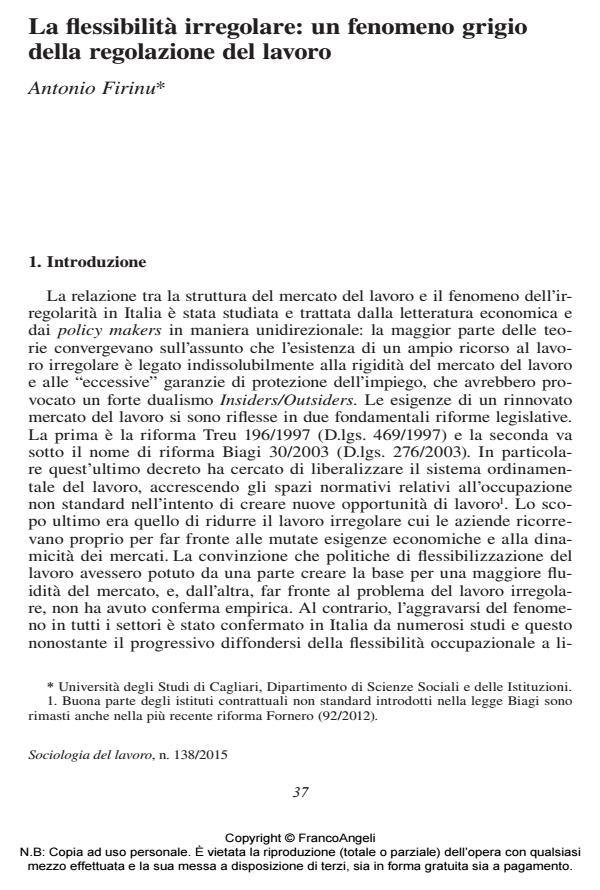Undeclared flexibility: new forms of irregularity in non standard work in Italy
Journal title SOCIOLOGIA DEL LAVORO
Author/s Antonio Firinu
Publishing Year 2015 Issue 2015/138
Language Italian Pages 18 P. 37-54 File size 159 KB
DOI 10.3280/SL2015-138003
DOI is like a bar code for intellectual property: to have more infomation
click here
Below, you can see the article first page
If you want to buy this article in PDF format, you can do it, following the instructions to buy download credits

FrancoAngeli is member of Publishers International Linking Association, Inc (PILA), a not-for-profit association which run the CrossRef service enabling links to and from online scholarly content.
The paper focuses on new forms of irregularity emerging within the application of non standard contracts in Italy. By an empirical research in the province of Cagliari it has been found that non standard work is often characterized by gray areas very difficult to identify within a clear legal framework. Precisely, Non standard work can be improperly used by employers in order to lower production costs and disguise full-time subordinated working relations. The ultimate aim of the paper is to draw an analytical picture over the flexibility-irregularity relationship in Italy. The theoretical assumption asserting that the increasing use of non standard employment has always a positive effect on the reduction of the extent of irregular work is here criticized, while it is claimed the existence of a parallel mechanism of complementarity between irregularity and flexibility. The consequence on the supply side is the emergence of new social insecurities related to new type of irregularities.
Keywords: Irregular work, flexibility, precariousness, underground economy, flexicurity, inspection activity
Antonio Firinu, La flessibilità irregolare: un fenomeno grigio della regolazione del lavoro in "SOCIOLOGIA DEL LAVORO " 138/2015, pp 37-54, DOI: 10.3280/SL2015-138003